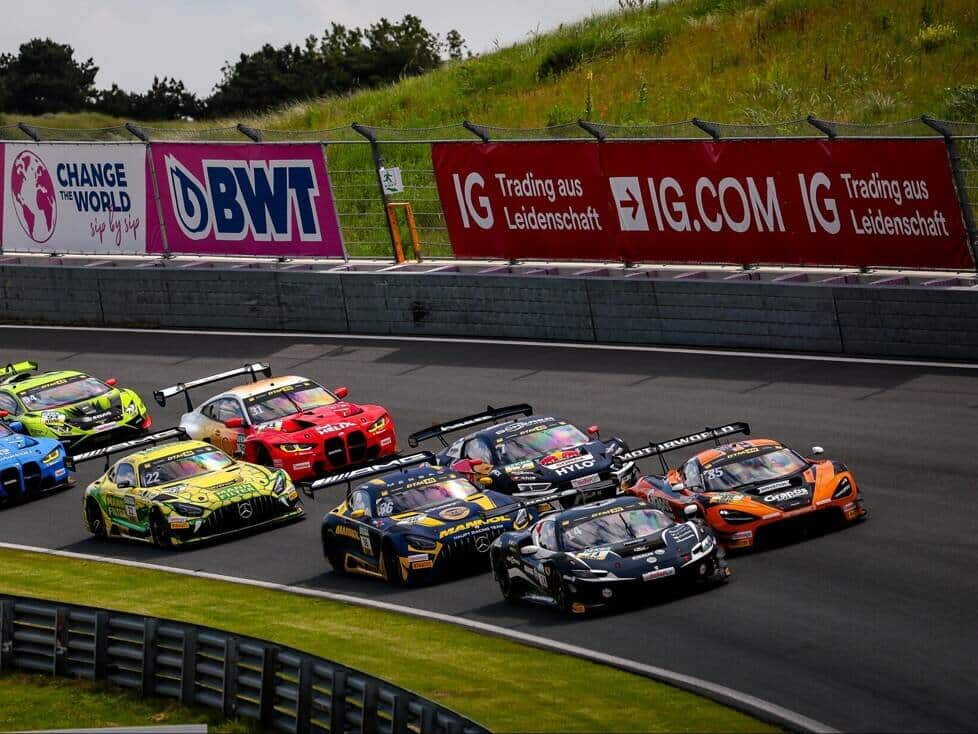Why the McLaren data helped the team at Zandvoort, why the dune circuit suits the 720S GT3 Evo and what prevented the first podium finish for Clemens Schmid
A twelfth place in Oschersleben was the McLaren highlight in the DTM until the Zandvoort weekend, but on the dune circuit the newcomers from Dörr Motorsport suddenly presented themselves as strong as a bear: After second place in qualifying, Clemens Schmid finished fourth in Saturday’s race. And would probably have finished on the podium if the stop had worked out perfectly
But why did things go much better in Zandvoort than before? “Oschersleben and the Lausitzring were completely new territory for the McLaren”, “Here we had a base of data thanks to the support from McLaren – and knew: this can work and that can’t.”
The 720S GT3 had already raced in the GT World Challenge Europe at Zandvoort, which put the manufacturer in a better position. The Dörr squad therefore did not have to start from scratch with the set-up and only worked on fine-tuning on Friday
Why the McLaren is not a fan of high kerbs
In addition, the Zandvoort circuit suits the mid-engined turbo car. Why is that? “We can drive the car relatively low, which is what the car needs,” says Schmid, explaining that they opted for the minimum permitted vehicle height. This has to do with the track characteristics: “There are fewer kerbs here that you have to drive over.”
After Schmid was still annoyed about Thomas Preining’s blockage in the early Sunday qualifying session on Friday evening, he managed the second-best time behind Jack Aitken in Saturday’s qualifying, even if he couldn’t believe it himself at first. “When the engineer told me that I was four tenths behind in second place, I thought to myself: I misheard him!” he says. “Did he mean 20th place? ”
Missed pit stop prevents podium finish
Starting from the front row, Schmid was able to keep ahead of HRT Mercedes driver Arjun Maini with difficulty. “The revs were a bit too low in second gear,” he explains. “I expected Jack to pick up the pace beforehand, but that was clever of him. But then, thank God, we had enough bang from the turbo. ”
However, Schmid then lost valuable time during the stop, which lasted a total of eleven seconds, “because the nut at the rear left got a bit stuck”, which allowed first Rene Rast and then Maini to make the overcut. The stops are currently still the Achilles heel of the new team
BMW as the cause of long brake pedal?
Was Schmid still planning a final attack on the podium? “The BMW has the exhaust system on the right-hand side. And in the two and a half laps behind Rene, the brake temperatures rose so much that the brake pedal was too long at some point,” says Schmid, explaining what spoke against it.
In addition, the flat McLaren already has a limited air supply to the brakes. “I didn’t want to knock us both out with a hara-kiri maneuver,” said Schmid, who had been knocked out of the race in promising positions at the Lausitzring last year and at Hockenheim in 2022. “That’s why I wanted to bring home fourth place. ”
The joy was correspondingly great for the squad, which was only able to form late on after the plans with Project 1 could not be realized.
Even though the balance of performance classification of the McLaren in Zandvoort was certainly not unfavorable, Schmid sees the team making great progress, especially as rookie Ben Dörr finished a strong twelfth in Saturday’s qualifying and set the fastest lap in the race. “I think we would have been at this level at Oschersleben with the level of knowledge we had today,” he says.

